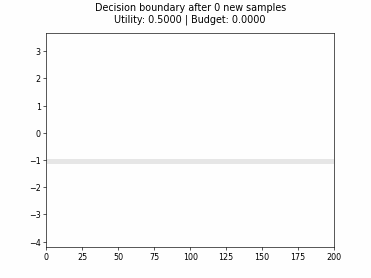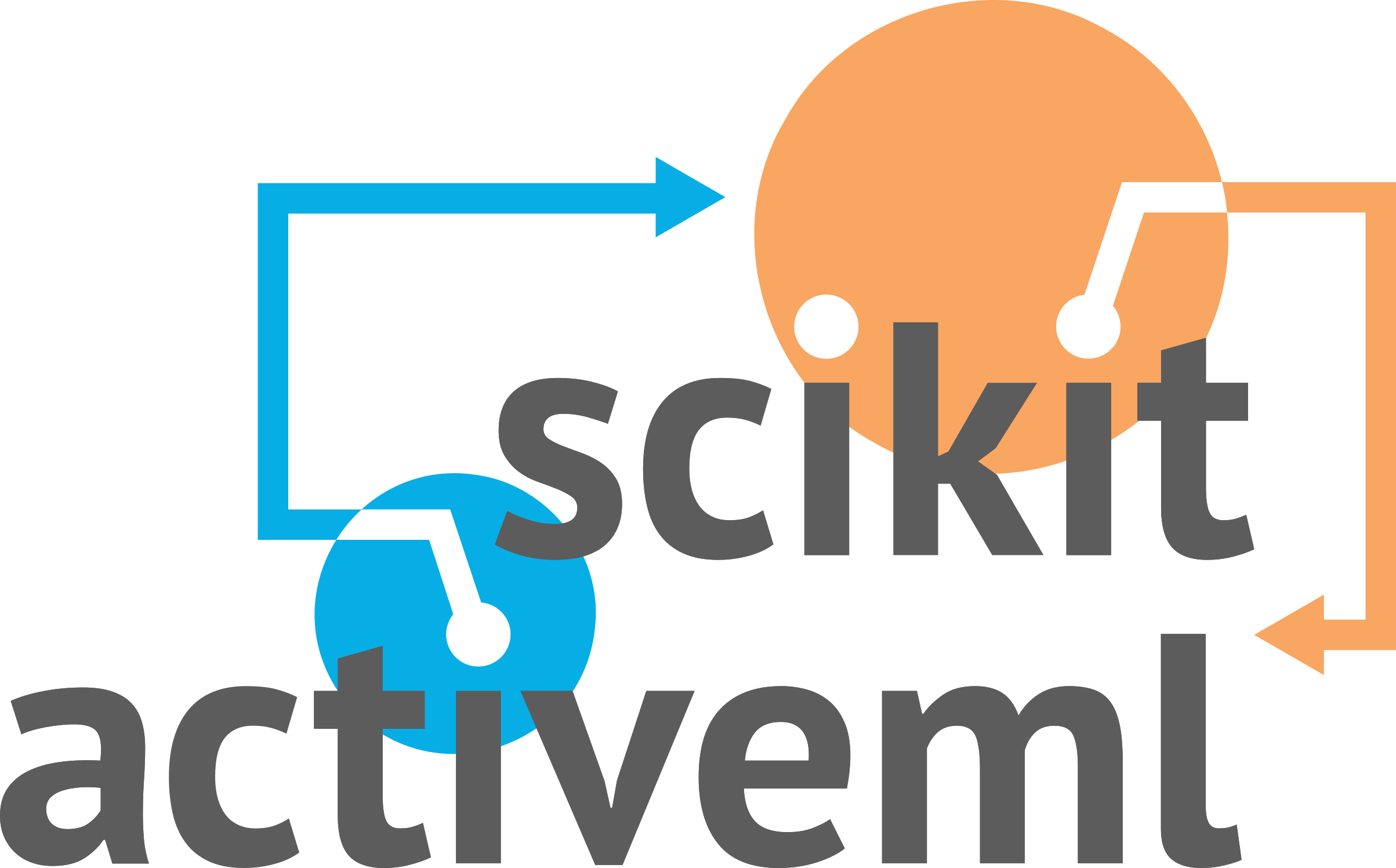CognitiveDualQueryStrategyRanVarUn#
- class skactiveml.stream.CognitiveDualQueryStrategyRanVarUn(force_full_budget=False, dist_func=None, dist_func_dict=None, density_threshold=1, cognition_window_size=10, budget=None, random_state=None)[source]#
Bases:
CognitiveDualQueryStrategyThis class implements the CognitiveDualQueryStrategy [1] strategy with RandomVariableUncertainty. The CognitiveDualQueryStrategy strategy is an extension to the uncertainty based query strategies proposed by Žliobaitė et al. [2] and follows the same idea as StreamDensityBasedAL [3] where queries for labels is only allowed if the local density around the corresponding sample is sufficiently high. The authors propose the use of a cognitive window that monitors the most representative samples within a data stream.
- Parameters:
- force_full_budgetbool, default=False
If True, tries to utilize the full budget. The article does not update the budget manager if the locale density factor is 0.
- dist_funccallable, default=None
The distance function used to calculate the distances within the local density window. If it is None, sklearn.metrics.pairwise.pairwise_distances will be used by default.
- dist_func_dictdict, default=None
Additional parameters for dist_func.
- density_thresholdint, default=1
Determines the local density factor size that needs to be reached in order to query the candidate’s label.
- cognition_window_sizeint, default=10
Determines the size of the cognition window.
- budget_managerBudgetManager, default=None
The BudgetManager which models the budgeting constraint used in the stream-based active learning setting. if set to None, RandomBudgetManager will be used by default. The budget manager will be initialized based on the following conditions:
If only a budget is given, the default budget manager is initialized with the given budget.
If only a budget manager is given, use the budget manager.
If both are not given, the default budget manager with the default budget.
If both are given, and the budget differs from budgetmanager.budget, throw a warning and the budget manager is used as is.
- budgetfloat, default=None
Specifies the ratio of samples which are allowed to be sampled, with 0 <= budget <= 1. If budget is None, it is replaced with the default budget 0.1.
- random_stateint or RandomState instance, default=None
Controls the randomness of the estimator.
See also
budgetmanager.RandomBudgetManagerThe default budget manager.
CognitiveDualQueryStrategyThe base class for this strategy.
References
[1]S. Liu, S. Xue, J. Wu, C. Zhou, J. Yang, Z. Li, and J. Cao. Online Active Learning for Drifting Data Streams. IEEE Trans. Neural Netw. Learn. Syst., 34(1):186–200, 2023.
[2]I. Žliobaitė, A. Bifet, B. Pfahringer, and G. Holmes. Active Learning With Drifting Streaming Data. IEEE Trans. Neural Netw. Learn. Syst., 25(1):27–39, 2014.
[3]D. Ienco, I. Žliobaitė, and B. Pfahringer. High density-focused uncertainty sampling for active learning over evolving stream data. In Int. Workshop Big Data Streams Heterog. Source Min. Algorithms Syst. Program. Models Appl., pages 133–148, 2014.
Methods
Get metadata routing of this object.
get_params([deep])Get parameters for this estimator.
query(candidates, clf[, X, y, ...])Determines for which candidate samples labels are to be queried.
set_params(**params)Set the parameters of this estimator.
update(candidates, queried_indices[, ...])Updates the budget manager and the count for seen and queried labels.
- get_metadata_routing()#
Get metadata routing of this object.
Please check User Guide on how the routing mechanism works.
- Returns:
- routingMetadataRequest
A
MetadataRequestencapsulating routing information.
- get_params(deep=True)#
Get parameters for this estimator.
- Parameters:
- deepbool, default=True
If True, will return the parameters for this estimator and contained subobjects that are estimators.
- Returns:
- paramsdict
Parameter names mapped to their values.
- query(candidates, clf, X=None, y=None, sample_weight=None, fit_clf=False, return_utilities=False)#
Determines for which candidate samples labels are to be queried.
The query startegy determines the most useful samples in candidates, which can be acquired within the budgeting constraint specified by budget. Please note that, this method does not change the internal state of the query strategy. To adapt the query strategy to the selected candidates, use update(…).
- Parameters:
- candidates{array-like, sparse matrix} of shape (n_candidates, n_features)
The samples which may be queried. Sparse matrices are accepted only if they are supported by the base query strategy.
- clfskactiveml.base.SkactivemlClassifier
Model implementing the methods fit and predict_proba.
- Xarray-like of shape (n_samples, n_features), default=None
Training data set used to fit the classifier.
- yarray-like of shape (n_samples,)
Labels of the training data set (possibly including unlabeled ones indicated by self.missing_label).
- sample_weightarray-like of shape (n_samples,), default=None
Weights of training samples in X.
- fit_clfbool, default=False
Defines whether the classifier should be fitted on X, y, and sample_weight.
- return_utilitiesbool, default=False
If True, also return the utilities based on the query strategy.
- Returns:
- queried_indicesnp.ndarray of shape (n_queried_indices,)
The indices of samples in candidates whose labels are queried, with 0 <= queried_indices <= n_candidates.
- utilities: np.ndarray of shape (n_candidates,),
The utilities based on the query strategy. Only provided if return_utilities is True.
- set_params(**params)#
Set the parameters of this estimator.
The method works on simple estimators as well as on nested objects (such as
Pipeline). The latter have parameters of the form<component>__<parameter>so that it’s possible to update each component of a nested object.- Parameters:
- **paramsdict
Estimator parameters.
- Returns:
- selfestimator instance
Estimator instance.
- update(candidates, queried_indices, budget_manager_param_dict=None)#
Updates the budget manager and the count for seen and queried labels. This function should be used in conjunction with the query function.
- Parameters:
- candidates{array-like, sparse matrix} of shape (n_candidates, n_features)
The samples which may be queried. Sparse matrices are accepted only if they are supported by the base query strategy.
- queried_indicesnp.ndarray of shape (n_queried_indices,)
The indices of samples in candidates whose labels are queried, with 0 <= queried_indices <= n_candidates.
- budget_manager_param_dictdict, default=None
Optional kwargs for budget_manager.
- Returns:
- selfCognitiveDualQueryStrategy
The query strategy returns itself, after it is updated.
Examples using skactiveml.stream.CognitiveDualQueryStrategyRanVarUn#

Cognitive Dual-Query Strategy with Randomized-Variable-Uncertainty
